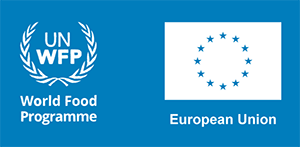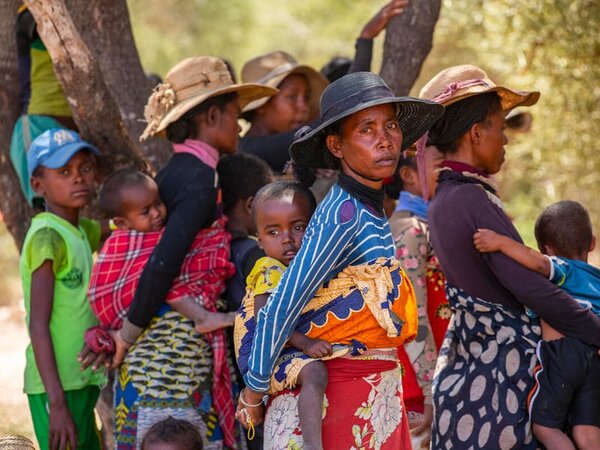
A Year of Unprecedented Needs
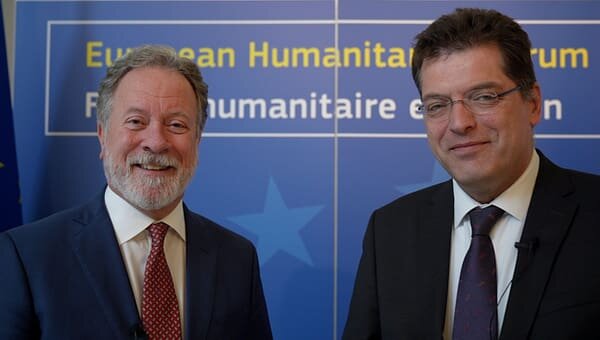
WFP's Partnership with the EU
Rising to meet these challenges, the European Union showed its commitment to the world’s most vulnerable once again. In 2021, the European Commission alone contributed €424 million and was WFP’s third largest donor.
The European Commission’s Directorate-General for European Civil Protection and Humanitarian Aid Operations (DG ECHO) allowed WFP to address the world’s worst emergencies, helping us reach the most vulnerable in countries affected by conflict, climate change and economic crises. The EU's humanitarian funding allowed WFP to save lives in the most severe emergencies and implement innovative solutions to effectively help those in need.
Thanks to support from the European Commission’s Directorate-General for International Partnerships (DG INTPA), WFP worked to address the root causes of hunger, providing communities around the globe with sustainable and long-term solutions to lift them out of hunger and poverty — ranging from resilience building and livelihoods activities to nutrition and school meals programmes.
Together with the European Commission’s Directorate-General for Neighbourhood and Enlargement Negotiations (DG NEAR), WFP helped strengthen national social safety nets in countries like Lebanon, allowing us to provide cash assistance to both vulnerable refugees and impoverished host communities.
Across the European Union
In addition to working with the European Commission to fight hunger around the globe, WFP has also developed strong partnerships with the other EU institutions in Brussels, particularly the European Parliament, the Council of the European Union the European Union External Action Service (EEAS) and the Service for Foreign Policy Instruments (FPI).
WFP, FAO and the EU are also the founding members of the Global Network Against Food Crises, and together we publish an annual report — called The Global Report on Food Crises — with the latest numbers on people facing acute hunger and malnutrition in crisis-prone countries. WFP also worked closely with the EU at high-level pledging conferences during the year, including the Brussels V Syria Conference and the Yemen Senior Official Meeting.
WFP also participated in a high-level dialogue on anticipatory action against food crises, and at the Brussels launch of the Global Humanitarian Overview. We also hold frequent briefings with members of the European Parliament, and have addressed the Parliament's Committees on Development and Delegation for relations with Afghanistan. WFP also held several other meetings and exchanges with the EU throughout the year, including technical exchanges with DG INTPA and The Directorate-General for Climate Action (DG CLIMA) on our common climate action priorities, and with DG INTPA on digital transformation initiatives.
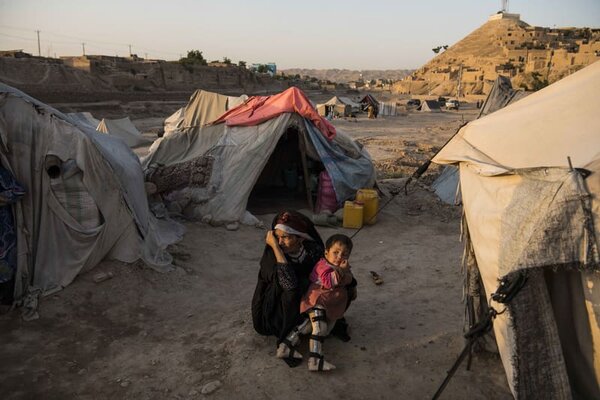
EMERGENCY RESPONSE
Yemen
In Yemen, the EU generously supported WFP’s famine relief efforts, helping us address the urgent food needs of nearly 13 million people through food and cash assistance, staving off catastrophe.
Afghanistan
The EU considerably stepped up support to the people of Afghanistan when they faced an avalanche of hunger and destitution from a spiralling economic crisis, conflict and drought. WFP reached 15 million Afghanis in 2021.
South Sudan
As a long-standing partner of WFP in South Sudan, the EU also supported WFP’s humanitarian operations in the country at a time when more than 8 million people were in need of urgent assistance following record floods, conflict and the effects of COVID-19.
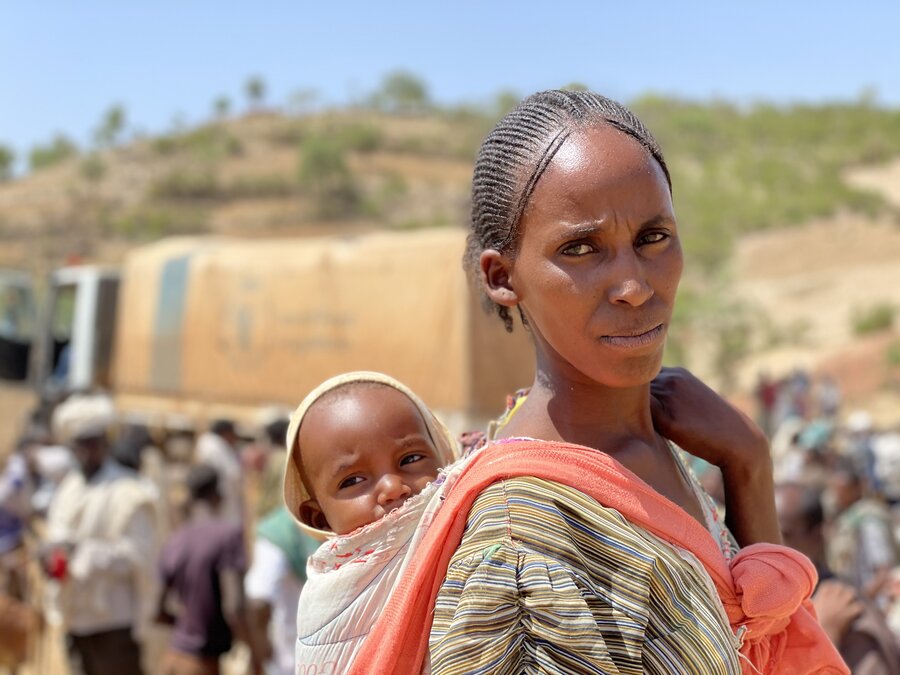
Ethiopia
A catastrophic combination of conflict in the north and climate shocks in the south pushed millions of people into hunger. The conflict in Northern Ethiopia in 2021 reversed progress made in achieving food security in many parts of the country. WFP had to respond quickly and at scale. But thanks to donors like the EU, WFP kept the UN Humanitarian Air Service (UNHAS) in the skies and connected aid workers to hard-to-reach areas.
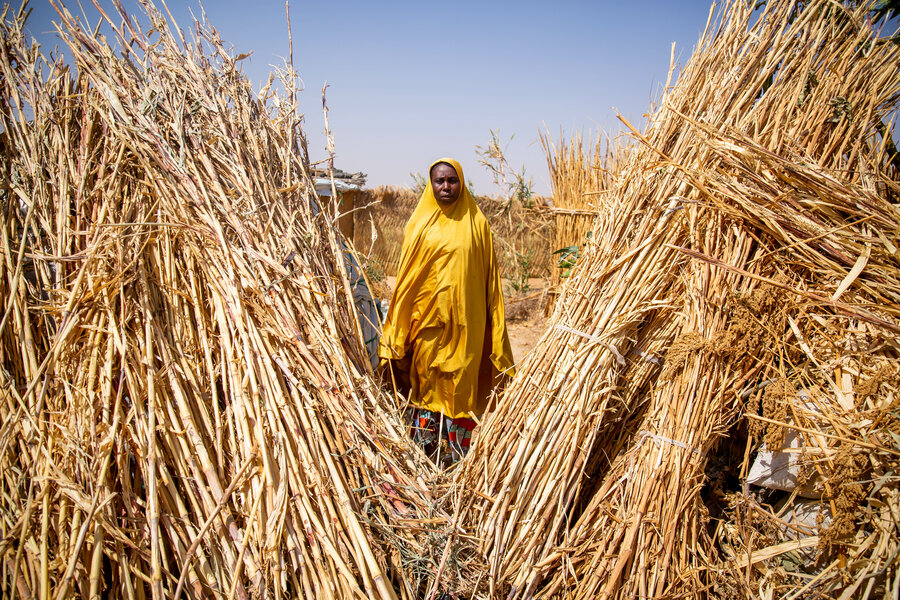
Nigeria
In North-Eastern Nigeria, conflict affects the lives and livelihoods of millions of people. Joint efforts by the Nigerian Government, the humanitarian community and donors like the EU have helped reach nearly two million people in 2021 and have managed to stabilise an extremely serious food security situation.
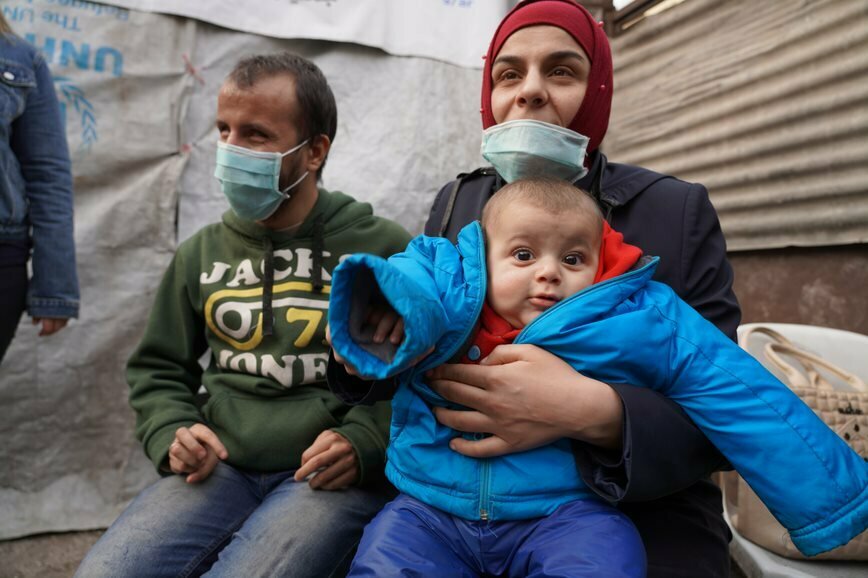
Syria
At a time when humanitarian needs across Syria were greater than ever with more than 12 million people food-insecure, funding from the EU helped Syrian families boost their nutrition with a combination of food and cash assistance. Support from the EU also helped UNHAS ensure safe and reliable transport for humanitarians across the country.
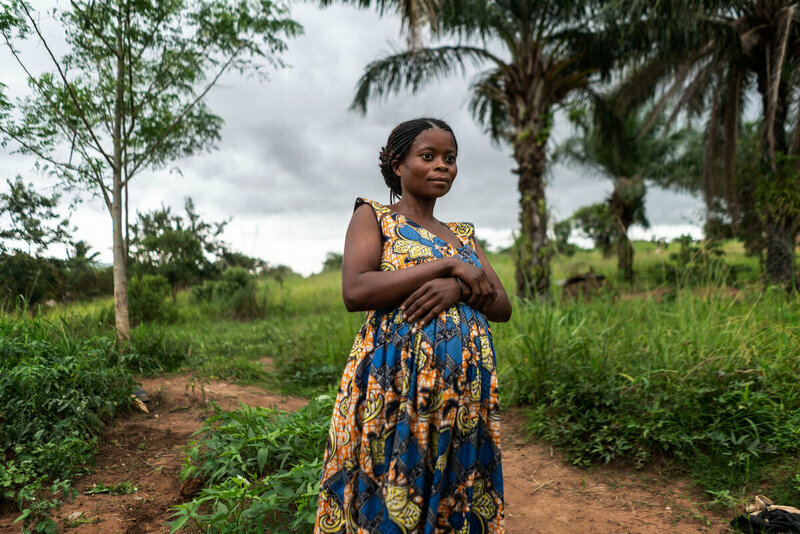
DRC
Protracted conflict has uprooted millions of people from their homes across the Democratic Republic of Congo (DRC). Some 27 million people were food-insecure in 2021, fuelled by poor harvests, conflict, disease and collapsing infrastructure. Funding from the EU helped WFP provide cash assistance to the most vulnerable, helping them put food on the table.
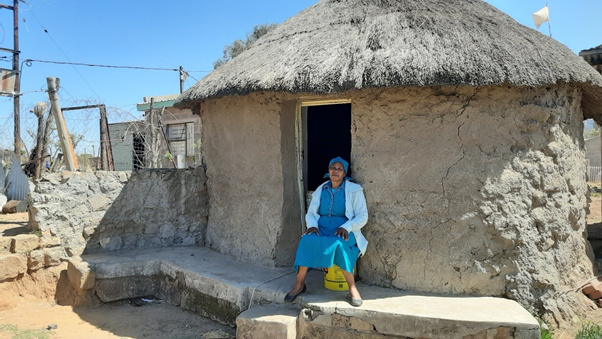
Lesotho
The combination of climate change, a worsening economy and the impact of COVID-19 pushed many into food insecurity in Lesotho. Late rains and severe droughts reduced agricultural yields and the pandemic heavily affected livelihoods. In response, WFP provided cash transfers to people living in urban areas to help them get by, thanks to donors like the EU.
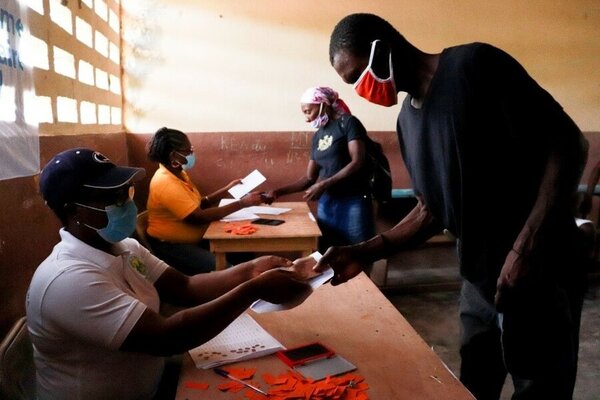
Forgotten Crises
Haiti
In 2021, hunger was once again on the rise in Haiti due to economic decline, climate change and natural disasters. Support from donors helped WFP provide vital cash assistance to the most vulnerable, boosting local economies and empowering communities. When a powerful earthquake struck Haiti in August 2021, EU funds also helped WFP respond quickly to assist those whose homes had been destroyed.
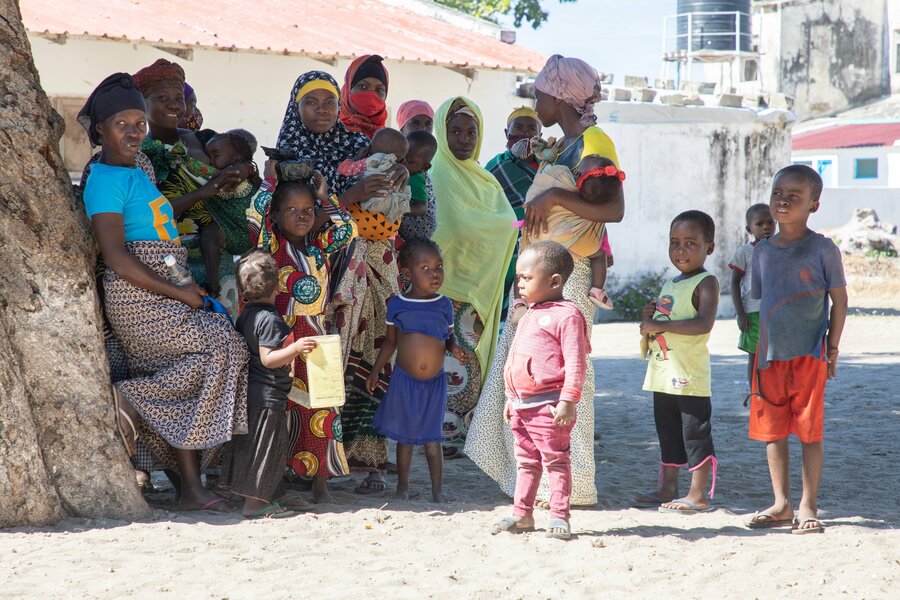
Mozambique
The EU supported WFP’s response in the north of Mozambique, a region experiencing one of the fastest-growing displacement crises brought on by violence. Thanks to the EU’s funds, WFP provided vouchers or monthly food rations that consisted of rice, pulses and oil in places where supplies were available.
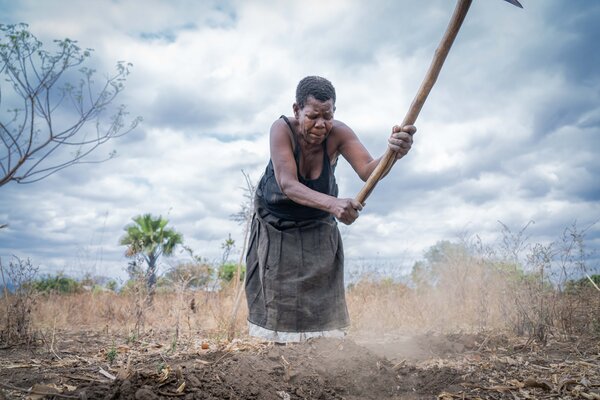
Climate Change
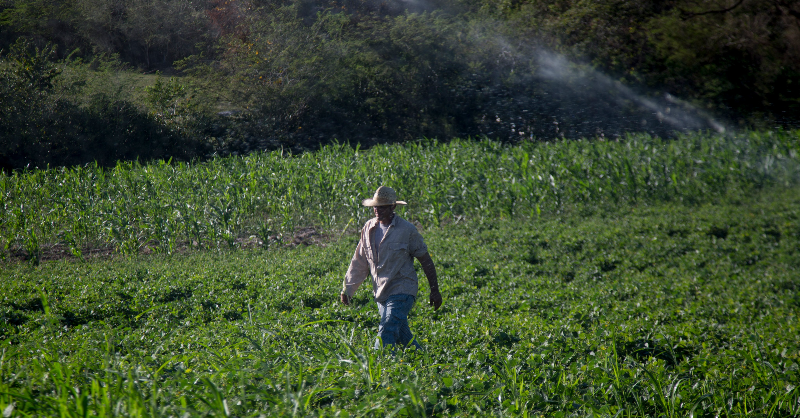
Cuba
In Cuba, EU support allowed WFP to help rural communities prepare for natural hazards like droughts by regularly measuring water levels and taking early action to save crops and livestock.
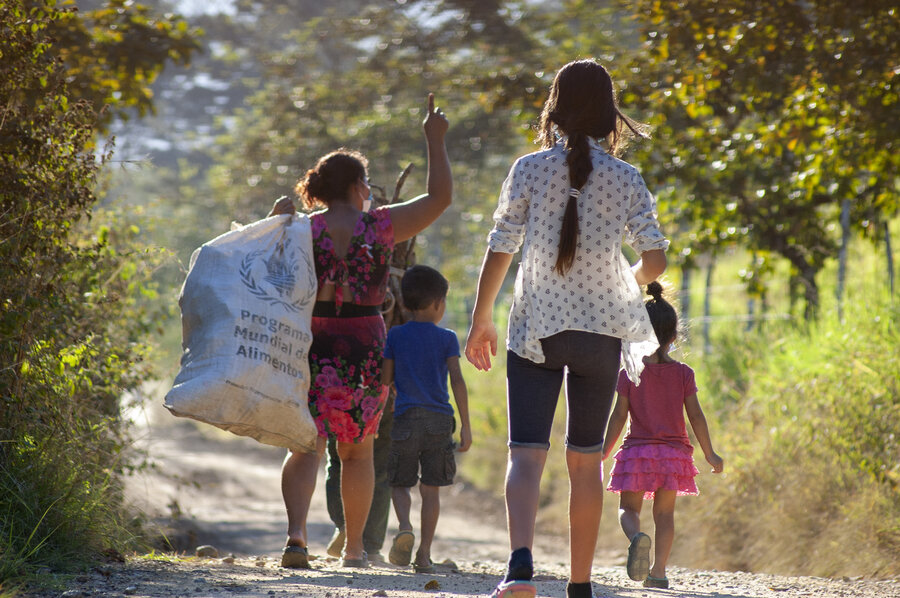
Guatemala
EU funding also enabled WFP to assist poor rural communities in Guatemala affected by recurring storms and hurricanes that disrupt the economy. Together, we boosted their livelihoods and sources of income, improved their nutrition and helped them rehabilitate and conserve land.
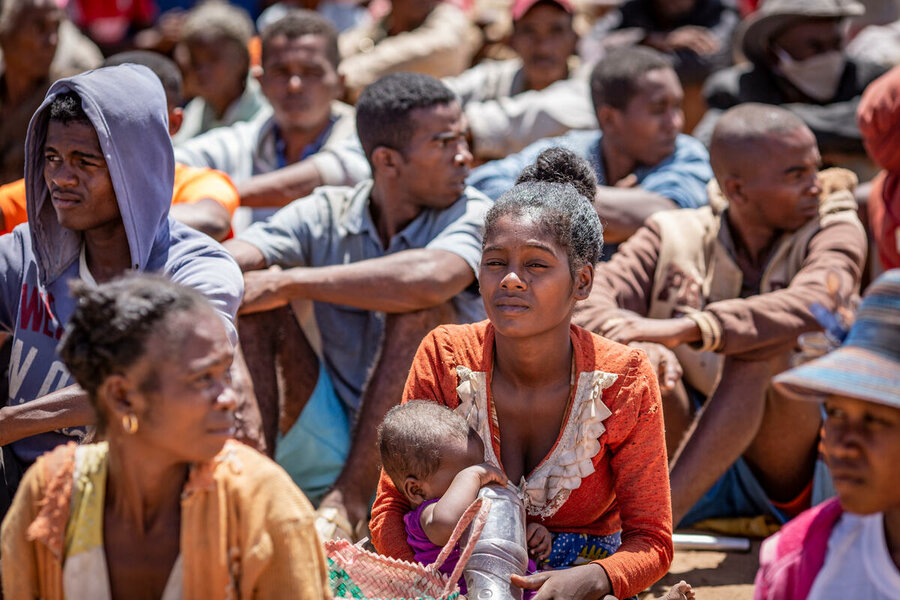
Madagascar
In the southern region of Madagascar, recurrent drought has had a devastating impact, wiping out harvests and hampering people's access to food. In areas where local markets are supplied and functioning, WFP delivered cash transfers to vulnerable households to help them overcome the lean season, thanks to support from the EU.
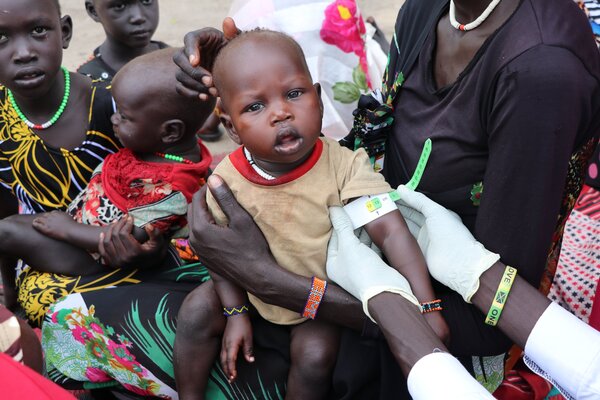
Nutrition Support
Central Sahel
In 2021, WFP provided food and nutrition support to vulnerable communities in the Central Sahel—comprising Burkina Faso, Mali and Niger—thanks to funding from the EU. The programme helps strengthens local, regional and national food systems by boosting the production, conservation, processing and consumption of nutritious foods.
Bangladesh
In Bangladesh, the EU also supported WFP’s food and nutrition programmes targeting refugees living in Cox’s Bazar. With WFP e-vouchers, beneficiaries could buy fresh and nutritious foods in the shops and markets set up in the world’s largest refugee camp. WFP also provided mothers and young children with nutrition advice and support.
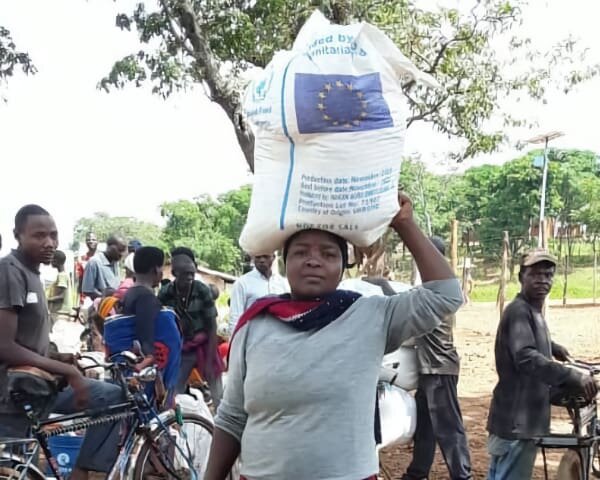
Tanzania
Although Tanzania produces over 90 percent of its own food requirements, access to adequate food remains a problem for many households. Many families also face challenges in both accessing and understanding sensitive nutritional information. In 2021, thanks to donors like the EU, WFP helped communities improve their knowledge on nutrition, dietary diversity, and water, sanitation and hygiene through social behaviour change communication, diversification of food production and distribution of specialized nutritious foods.
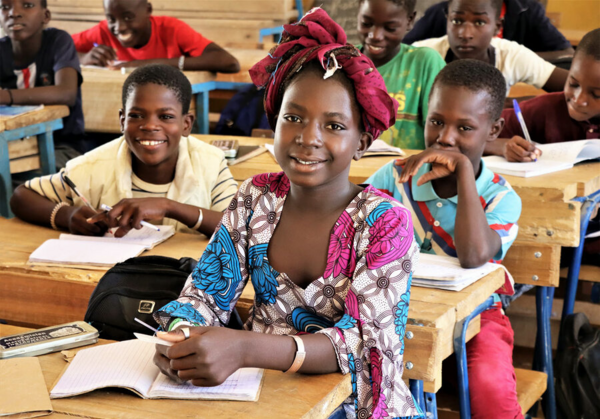
School Feeding
South Sudan
Girls in South Sudan are more likely than boys to be excluded from education. In some parts of the country, it is estimated that over 75 percent of primary-school-aged girls are not in school. Critically, school feeding helps put a stop to early marriage which can trap young mothers in particular in poverty, posing huge risks to their health. Thanks to support from the EU, WFP’s school feeding programme motivated families to keep their daughters in school.
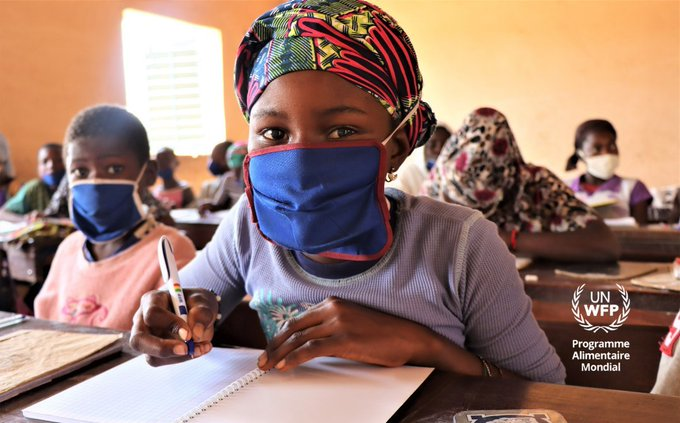
Mali
In Mali, the EU helped launch a support programme to increase inclusion in schools, which aims to reintegrate 250,000 children, at least 50% of whom are out-of-school or out-of-school girls, into the education system. In addition to supporting children's education, the programme empowered women by helping them produce vegetables and fruits in school gardens—part of which was given to the schools while the other half was sold on the market.
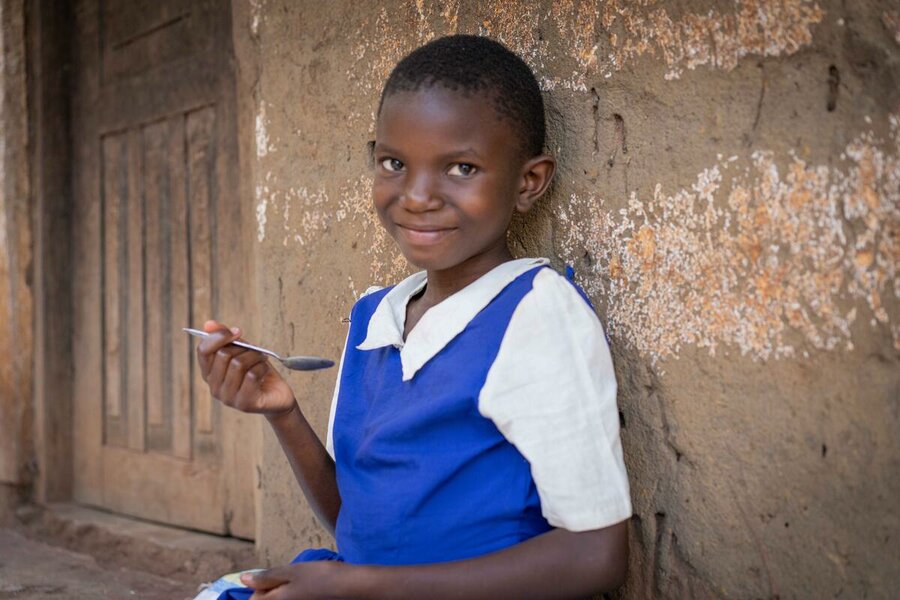
Malawi
WFP’s EU-funded home-grown school feeding programmes in Malawi also delivered healthy meals to children. WFP bought food for the schools locally from smallholder farmers, stimulating local agriculture production and economies, while also strengthening local food systems.
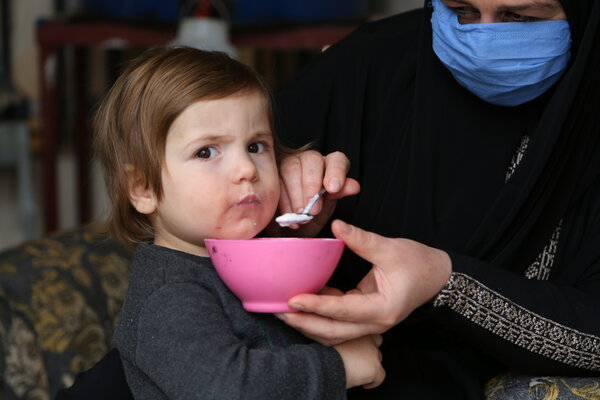
Social Protection
Together with donors like the EU, WFP worked with governments and partners to ensure that by 2030 people will have substantially increased access to national social protection schemes that safeguard and foster their ability to meet their food security, nutrition and associated essential needs, and to manage the risks and shocks they face.
In Lebanon, for example, WFP helped the government provide cash assistance to Syrian refugees living in the country as well as the Lebanese host communities, as part of nation social protection programmes. This was made possible thanks to donors like the EU.
